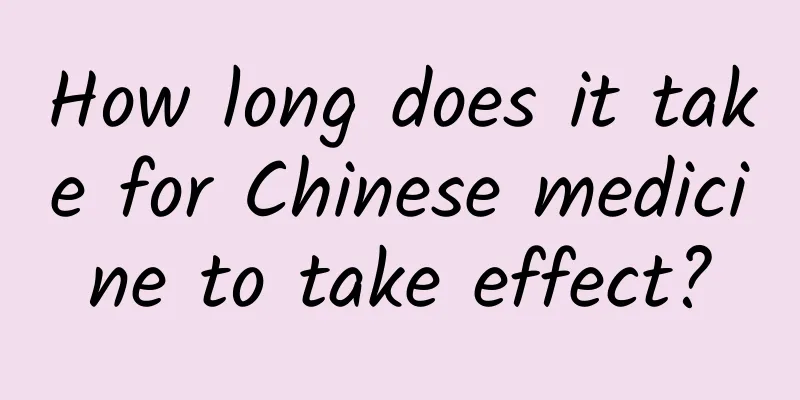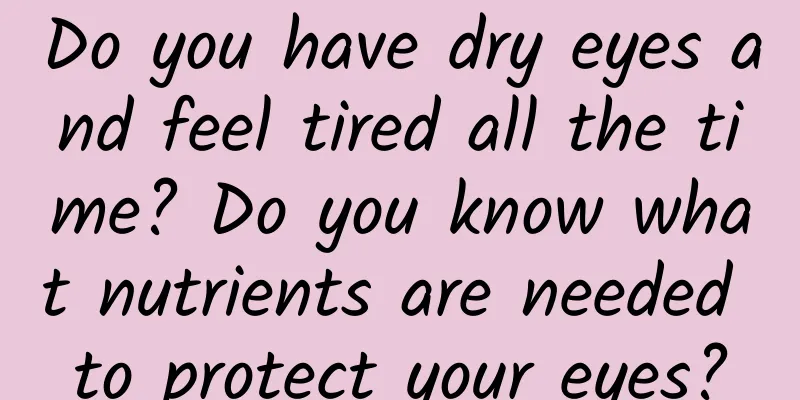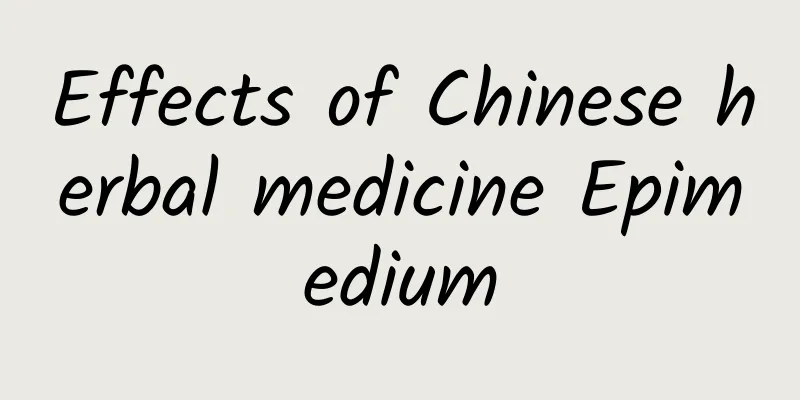How long does it take for Chinese medicine to take effect?

|
How long it takes for Chinese herbal medicine to take effect is related to one's physical condition, the characteristics of the disease, the severity of the disease, whether the medicinal effect is effective for the symptoms, and even seasonal factors. It cannot be generalized. For common or critical illnesses such as colds, fever, etc., taking medicine in a short period of time will quickly improve the condition. However, if it is a series of chronic diseases such as hypertension, diabetes, hyperlipidemia, cardiovascular and cerebrovascular diseases, long-term medication is required to gradually have a therapeutic effect. It is recommended that the actual time for taking medicine should be adjusted at any time and anywhere according to the changes in symptoms. There is no need to be limited to how long it takes to be effective. It should be adjusted according to the disease. During the medication period, patients are advised to improve their compliance with treatment, strictly follow the doctor's orders to take medication, pay attention to a controlled diet, exercise appropriately, maintain adequate sleep and a positive attitude. Taking Chinese medicine is a long process of recuperation. There is no quick effect of medicine. Chinese medicine emphasizes syndrome differentiation and treatment. It looks at the actual effect of your taking the medicine and then makes corresponding changes to the prescription. Generally, three consecutive treatment courses are required, with one course of treatment lasting seven days. Each dose of the medicine should be taken once in the morning, noon and evening to achieve a satisfactory therapeutic effect. If the disease is not cured, continue to treat it intermittently. If the disease is cured, stop taking the medicine immediately! In addition, because Chinese medicine conditioning takes a relatively long time, you should avoid spicy, greasy, and irritating foods during the conditioning period. At the same time, you should pay attention to arranging your time reasonably, increasing nutrition, and actively participating in exercise. Time to take Chinese medicine 1. Take before meals Generally, take the medicine 30 to 60 minutes before meals. If the main symptom is in the lower part, the medicine should be taken before meals to make the drug effect easier to be delivered, such as kidney deficiency or diseases below the waist. For the treatment of gastrointestinal diseases, it is also advisable to take medicine before meals, because when the stomach is empty, the medicine can directly come into contact with the digestive mucosa, quickly pass through the stomach into the intestines, and thus be more digested and absorbed and fully exerted, without being diluted by the food in the stomach and affecting the efficacy of the medicine. 2. Take after meal Generally, take the medicine 15 to 30 minutes after a meal. If the main symptom is on the upper part, the medicine should be taken after meals. For example, if you are treating symptoms above the heart, lung, chest, or stomach, taking the medicine after a meal can increase its efficacy. 3. Eat on an empty stomach Decoctions with nourishing and health-preserving effects should be taken on an empty stomach in the morning to facilitate adequate digestion and absorption. Medicines used to eliminate parasites or treat limb blood vessel diseases should also be taken on an empty stomach, which can allow the medicine to enter the intestines quickly and maintain a higher concentration to quickly exert its medicinal effect. The same is true for decoctions with laxative effects to enhance the efficacy of the medicine. 4. Before going to bed It is usually taken 15 to 30 minutes before going to bed. Medicines that nourish the lungs and stomach, soothe the mind, calm the nerves and aid sleep, as well as those for food stagnation, chest diseases, etc. Common problems with taking Chinese medicine Taboos of taking Chinese medicine When taking Chinese medicine, in order not to affect the efficacy of the medicine, many taboos need to be paid attention to, such as not taking spicy and greasy foods. In fact, in addition to spicy and greasy foods, patients also have many things to pay attention to when taking Chinese medicine. 1. During the period of taking Chinese medicine, you must remember not to eat spicy food, such as fish, shrimp, crab and other seafood, as well as beef and other mutton-smelling food. Because these foods contain heterosexual proteins, they will dissipate the medicinal power and easily cause side effects such as skin allergies. This must be remembered. 2. Do not drink strong tea while taking Chinese medicine, because strong tea contains more tannic acid, which will reduce the efficacy of Chinese medicine. It is especially important to note that many people have the habit of eating donkey-hide gelatin and white fungus. Donkey-hide gelatin and white fungus are also traditional Chinese medicines. Eating them with strong tea will hinder the body from digesting and absorbing their ingredients. If the patient has the habit of drinking tea, it is recommended to drink tea 2 to 3 hours after taking Chinese herbal medicine. 3. During the period of taking Chinese medicine, remember not to eat cold, greasy, or spicy food, because eating cold food will affect the gastrointestinal absorption of the medicine, and is not conducive to strengthening the spleen and stomach; greasy food can easily cause intestinal stagnation, which is not conducive to the body's absorption of the medicine; spicy food ingredients can easily produce phlegm and irritate the gastrointestinal tract. It should be noted that spicy food is not just very spicy food, but also includes hot condiments such as onion, ginger, garlic, and pepper. 4. You cannot eat radish while taking Chinese medicine, because eating carrots while taking medicine will easily reduce the efficacy of the medicine and will not have a therapeutic effect. However, this depends on what kind of Chinese medicine you are taking. 5. In fact, there are no definite dietary restrictions for Chinese medicinal materials. It depends on the patient's own condition. For example, patients with pustular inflammation cannot eat irritating foods, patients with three highs cannot eat greasy foods, and patients with sensitive stomachs cannot eat cold foods. |
<<: The efficacy and function of Schisandra chinensis
>>: What does Poria cocos look like?
Recommend
The efficacy and function of the root of old jatropha
The root of Crow's Gall is a traditional Chin...
What are the effects of the traditional Chinese medicine Rosa laevigata
Rosa rugosa is rich in nutrients, containing a va...
Year-end review: The youth power of China's science and technology in 2021
In China in 2021, there is a group of young and m...
The efficacy and function of Alpinia officinalis
Everyone is familiar with Alpinia galanga. It has...
Can Tianma and Danshen be used together?
The medicinal material Gastrodia elata has many e...
An encounter ten thousand years ago stirred up a vortex in the accretion disk!
During the star formation process, an accretion d...
Quantum health products, anti-aging functional foods? Pseudo-concepts, real traps!
Quantum health products dressed in high-tech garb...
Who is not suitable to eat Astragalus?
Generally, people with heat symptoms or high bloo...
The efficacy and function of the Chinese ground beetle [picture]
Traditional Chinese medicine is very helpful in t...
Father's Day: Your name is my biggest goal
After graduation, Wang Wei's son, Prince, inh...
How to prevent fumonisin poisoning in summer?
How to prevent fumonisin poisoning in summer? Zha...
Seeing the Earth's rotation with the naked eye! This scene is so shocking
"I saw the earth's rotation with my nake...
Why are we building a telescope in Antarctica?
Please watch a "joyful" video first. Yo...
The recognition rate is close to 90%! AI robot: Tumor, where can you hide?
Written by: Tian Xiaoting Currently, cancer has b...









